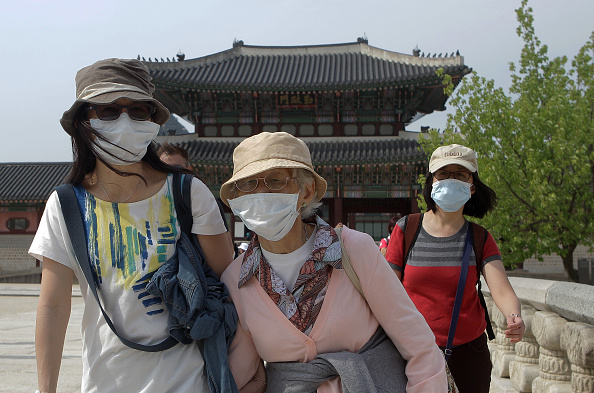
A South Korean man returned home from a trip to the Middle East. Several days after his return, he developed a cough and a fever. His visits to four healthcare facilities have led to an outbreak of Middle East respiratory syndrome (MERS) and three deaths in the area south of Seoul.
So far, South Korean health officials are working to contain the outbreak, but one way to do this is to trace all contacts from this man, called either Patient Zero or the index patient. As of Wednesday, the outbreak had affected about 30 people, but there are fears that it could spread the way that severe acute respiratory syndrome (SARS) spread in 2002. SARS killed about 800 people worldwide.
Half of the MERS infections in South Korea have been traced to a hospital in Pyeongtaek, which is 40 miles south of Seoul. The index patient was hospitalized there, where he shared a room with another patient and also walked through the hallways. The roommate came down with MERS and so did the roommate's son who had visited. This hospital has been closed and the staff has been quarantined. At the time of his hospitalization there, the staff did not know that he had visited the Middle East.
The index patient also spread the infection at three of the four healthcare facilities he visited. He was finally diagnosed with MERS at another hospital. At that hospital, he told staff that he had been in Bahrain on a business trip, but Bahrain is not considered a danger zone for MERS. However, he had also visited Saudi Arabia and the United Arab Emirates, which are danger zones for MERS. Most of the more than 400 deaths due to MERS have occurred in those two countries.
MERS is caused by a type of virus called a coronavirus. It causes fever, coughing, and respiratory illness that can lead to pneumonia and acute respiratory distress. In the Middle East, it has been transmitted from camels to people, but it also spreads from person to person and can linger in a healthcare setting.
